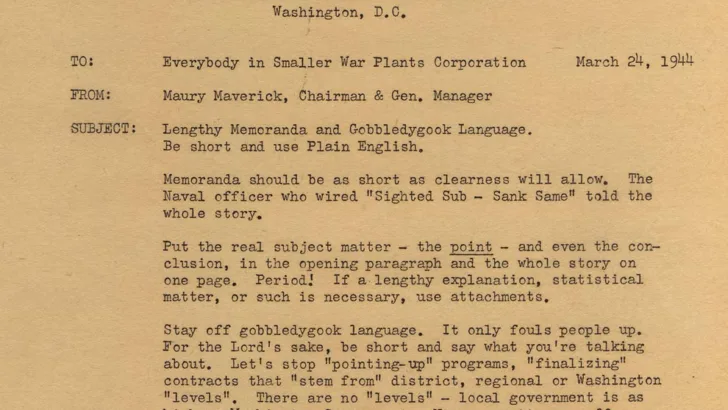“Gobbledygook” is a term coined by Rep. Maury Maverick (D-TX) for obscure and euphemistic bureaucratic language.
He first used the word in a 1944 memo, while he was chairman of the U.S. Smaller War Plants Committee, as part of a criticism of the obscure language used by his colleagues, which he called “gobbledy gobbling and strutting with ludicrous pomposity.”
Wrote Maverick: “For the Lord’s sake, be short and say what you’re talking about.”

Interestingly, Maverick was the grandson of Samuel Maverick, the maverick politician from whom we get the word “maverick.”
Gobbledygook is often characterized by the use of long, complicated words and phrases that are intended to impress or confuse the listener. It’s often meaningless and unintelligible, similar to weasel words.
It is often used by politicians to make their statements seem more sophisticated and knowledgeable, even if the words and phrases they are using are not actually meaningful or relevant.
For example, a politician might use gobbledygook to describe a policy proposal in terms that are difficult for the average person to understand, in order to make it seem more complex and therefore more impressive.
This can be frustrating for the audience, who may feel like they are being talked down to or manipulated.
Gobbledygook is also often used to avoid answering a question directly or to make a politician’s actions or policies sound more appealing to the public.
Examples of “Gobbledygook” in a sentence
- The politician’s speech was filled with gobbledgook, making it difficult for the audience to understand his message.
- The legislation was written in gobbledgook, making it nearly impossible for the average person to understand.
- The politician was accused of using gobbledgook in an attempt to obfuscate the truth.